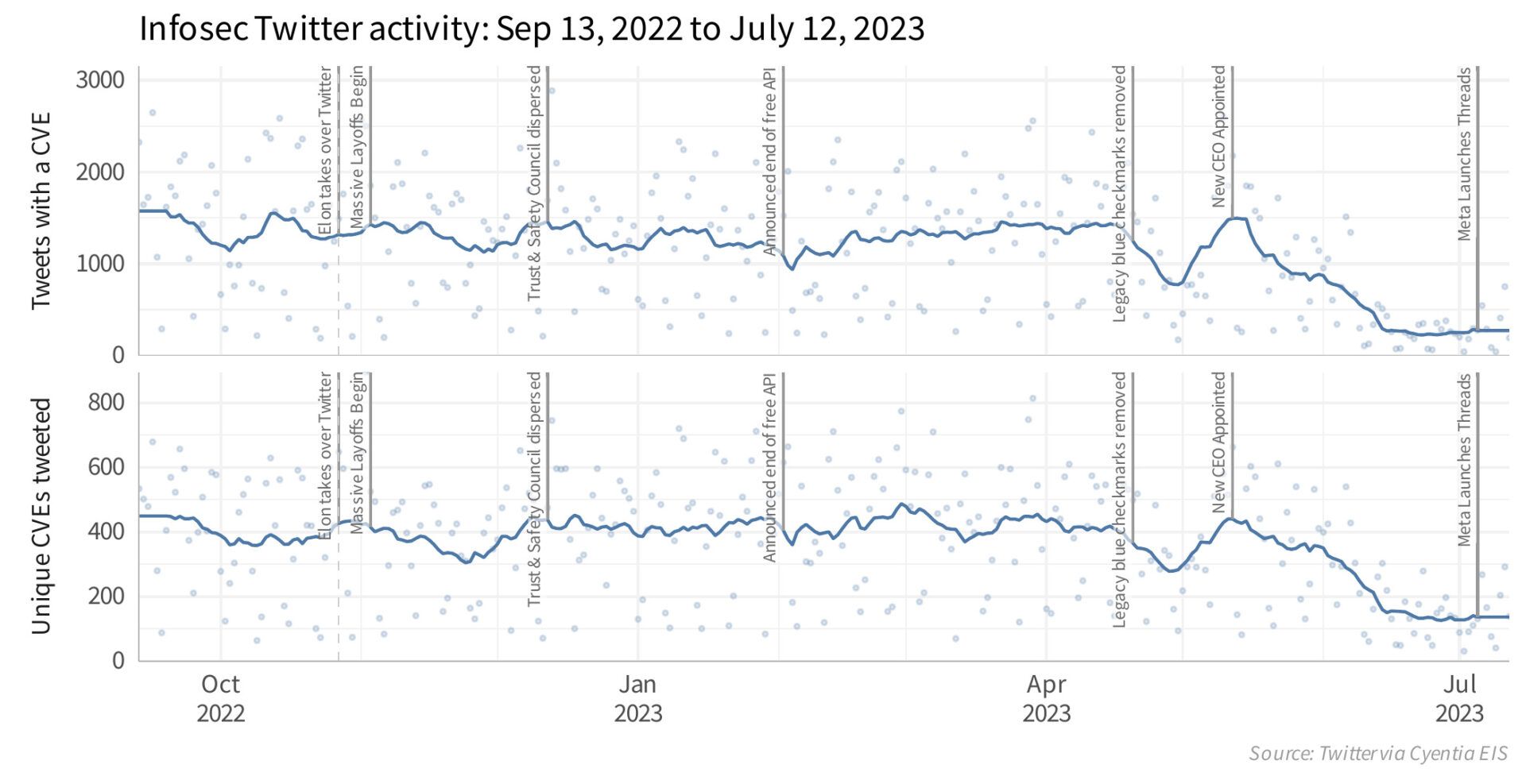The “death of Twitter” has been greatly debated since Elon Musk took over the reins as owner of the social media platform in October 2022 after purchasing it for $44 billion.
Even before the debut of Threads, Meta’s text-based social media app that has been dubbed the “Twitter killer” since earning over 100 million sign-ups in its first weekend earlier in July, Twitter’s struggles has been analyzed across the internet.
Musk contributed to the naysaying when he admitted this week that Twitter’s advertising revenue fell about 50%. According to a report by CBS News, Twitter’s overall traffic plummeted nearly 6% this year from January to June, with engagement dipping 5.5% from 88 million users to 85 million.
This general decline has been paralleled by widespread anecdotal reports over the past year that the site is no longer the bustling hive mind where information security professionals go to talk about cybersecurity, collaborate with other researchers and connect dots on the latest vulnerabilities. The community has been one of the most outspoken in promoting a large-scale migration to alternative social media like Threads, Mastodon, BlueSky, Post, Spoutible and others.
Adding fuel to this claim is Cyentia’s Jay Jacobs, who earlier this week declared that the death of “infosec Twitter” occurred sometime between the end of April or early May.
Using mentions of CVEs as a measure, Jacobs’ data showed that the daily infosec tweet count was 1,272 a day before musk purchased Twitter to just 333 tweets a day between June 21 and July 12 — about a 74% decrease.

Jacobs also noted that the drop was even more significant by removing automated CVE announcements, from about 500 tweets a day to 66, an 87% decrease in CVE-related tweets.
Melissa Bischoping, director of endpoint security research at Tanium, said there is still activity on Twitter, but said the security community can get intel from other sources such as Mastodon, Discord, Slack and BlueSky.
“If anything, I’m looking forward to when we ‘land’ somewhere and I can reasonably find most content in one place,” Bischoping said via email. “But until then, I’m out there with the rest of the industry, trying new sources (and discovering some new ones I wasn’t in before). It may be the death of ‘infosec twitter’ but the community itself — which is the important part — is alive and vibrant elsewhere.”




